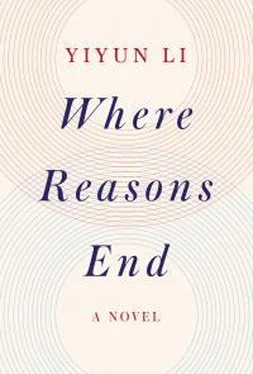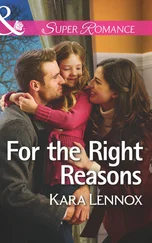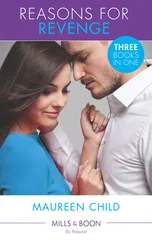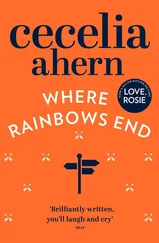I remember the painting, Nikolai said. I hid it in my closet because I spelled my name wrong.
Everyone seeing it would wonder where that boy in the painting came from, I said. Or where that boy is now, I thought.
Somewhere, he said, but really, don’t muddle your poor brain with riddles.
I told him the story of a dear friend of mine, who had been part of a lengthy program at a local music festival. By the time she was to play, it was late at night, and the music-saturated patrons had already crowded into the bar for reinforcement. When you play the piano to an empty room, does it still count as music? She and I had laughed on the phone about that question.
If you write poetry read by no one, does it still count as poetry, Nikolai said.
My heart ached. He had saved the music he had loved on my phone, all the way back to when he was six. It was a hodgepodge of classical music, Broadway musicals, lyrical arias, irreverent parodies of lyrical arias found on the Internet, soundtracks for videogames, and a folder of songs under “Edith Pilaf” (how we had laughed about his mistake). I was lucky to have every single piece of music he had listened to, yet luck in this story was purer and blinder than one could endure. Every time I turned on the music I thought of his poetry, written and yet to be written, unknown to me.
She herself heard the music, Nikolai said. That’s the apotheosis of a musician’s career, don’t you agree?
Apotheosis, I said. I forgot you liked the word.
A noun too posh for your taste, he said.
A few years ago, when a friend had published the first two books of a trilogy, The Apothecary and The Apprentices, Nikolai had asked me to query the title of the third book. If she hasn’t settled on one, he had said, I have a perfect title, The Apotheosis.
I still like that as a book title, he said.
I was going to give it to my children’s book.
Oh that, he said. None of your characters would understand the word.
When Nikolai had turned five, I had promised him that I would write a children’s book for him. Each year the promise extended to the next year. A few months before his death, I showed him the first two chapters, which he vehemently hated.
But Mommy, admit it, you can’t write a children’s book, he said now. You’re bad at it. Dreadfully, frightfully, ghastly, hair-raisingly bad.
The adverbs you’re addicted to, I said. I rather like the concept of the book.
The book, or what I had imagined it, was to be in part an autobiography of a rag doll that belonged to a little girl whose suffragette mother had been taken away to prison, and in part about the most impossible reader of the autobiography, a teenage girl living in the age of Snapchat and Instagram.
You could still write it, like your friend could play to the empty room.
No reason to write it ever again, I thought, if I had put it off year after year as though there were infinite time.
I thought you always prided yourself as a non-procrastinator, he said.
I’ve only procrastinated with that one project, I said. Many things, looked at from this side of death, gained bone-crushing weight. When Nikolai was in second grade, I had suggested that we eat out on the first day of spring break. Spring break is so short and I have so many things to do I cannot waste my life eating out, he had said. Oh, but a life is long, we have the time for a good meal, I had said. No, he had replied, there is never enough time in a life.
You can’t do that, Nikolai said. Everything looks different if you look at it from aftertime.
Most things, I corrected him automatically.
If you insist on being so annoyingly precise.
Is aftertime a word? I asked.
I think so, he said, if there is noon and there is afternoon.
Word and afterword, I said.
Math and aftermath, he said.
Life and afterlife, I said.
None of them sounds as appealing as aftertime, don’t you think?
But are you sure you are using it correctly?
Oh what does it matter, Mommy? Any moment that comes after time is aftertime.
Are we in aftertime then? I asked.
I am, but not you, he said.
Why not me?
You’ve said you live in days, so you are still in time. You can’t live in aftertime.
I remembered an older German woman, who had been Nikolai’s favorite preschool teacher. I had often thought of her as the most optimistic and efficient woman, calm and with good humor among three- and four-year-olds, all of them clamorous and demanding. She had once joked that her only contribution to America was to have adopted our family for Thanksgiving, an American holiday.
She taught me to play Nine Men’s Morris, Nikolai said.
Yes, I said. I found the board the other day.
Just wish I could see him again. When you come back please call me so we can cry together. I am so sad, the preschool teacher had written from California. I thought we prepared him to live.
She did a good job, Nikolai said. She taught me to garden and make cheese crisps and baked apples.
She also taught you that song we loved.
The little donkey song?
Yes, I said. The first time Nikolai had sung it at home, I had felt tears heavy behind my eyelids.
If I had a donkey
That wouldn’t go.
Do you think I’d beat him?
Oh, no, no!
I’d put him in a barn,
And give him some corn,
The best little donkey
That ever was born!
How ignorant and happy I was beforetime, Nikolai said.
Is beforetime a word?
As good a word as aftertime.
14
Consolation
I made a cake for Christmas Eve, I said.
Was it a success? Nikolai said.
Half of a success, I said. I made a Japanese cotton cheesecake. It’s a nice-looking cake, cheesy but not cottony.
So you failed the other half, he said. Now you understand my frustration as a baker.
Yes, but it’s okay. Sometimes the first draft of a story doesn’t turn out right.
Except you forget a cake is a one-draft story. You don’t get to revise.
But to rewrite? I said. I’m going to try again. Baking can’t be harder than writing, don’t you think?
You still don’t get it, Mommy. You can’t go back to make the cake twice. Like you can’t step into the same river twice.
Just as none of us could go back, re-measuring the ingredients that made up days and years, repeating the steps with more care, hoping to eliminate the errors, hoping not to make new mistakes, so that this story would have turned out differently. And Nikolai would still be alive.
I thought we were discussing baking, he said. Don’t make any unnecessary leaps.
One doesn’t, I thought, have to make a leap at all, when every time one looks up from a book or turns around in the kitchen or fills a vase with water, one bumps into that monumental absence.
Monumental? How clumsy, how cumbersome, how unwieldy you make me feel.
How you resort to redundancy to make a point, I said.
I know, he said. But really, monumental is a deathly word.
A friend of Nikolai’s had written, reminiscing that when they stood in a circle to talk, he bounced up and down as though he had springs in his shoes. Another friend had told me that when they had gone out for walks, he would jump into the air to pick the plums that were out of everyone’s reach. A mother of his classmate had written, telling me that he would always remain in her memory as the boy who had raced his friends down a street lit up by orange lights on an autumn night. How can one make a monument, granite or marble or bronze, lithe and nimble in flight?
I would say a cotton cheesecake is a more sensible quest than a monument, Nikolai said.
I told him that the word monument came from Latin monumentum, memorial, and mon ē re, to remind. I had looked it up, along with mind and memory and mourn. Many words had to be relearned since his death.
Читать дальше












